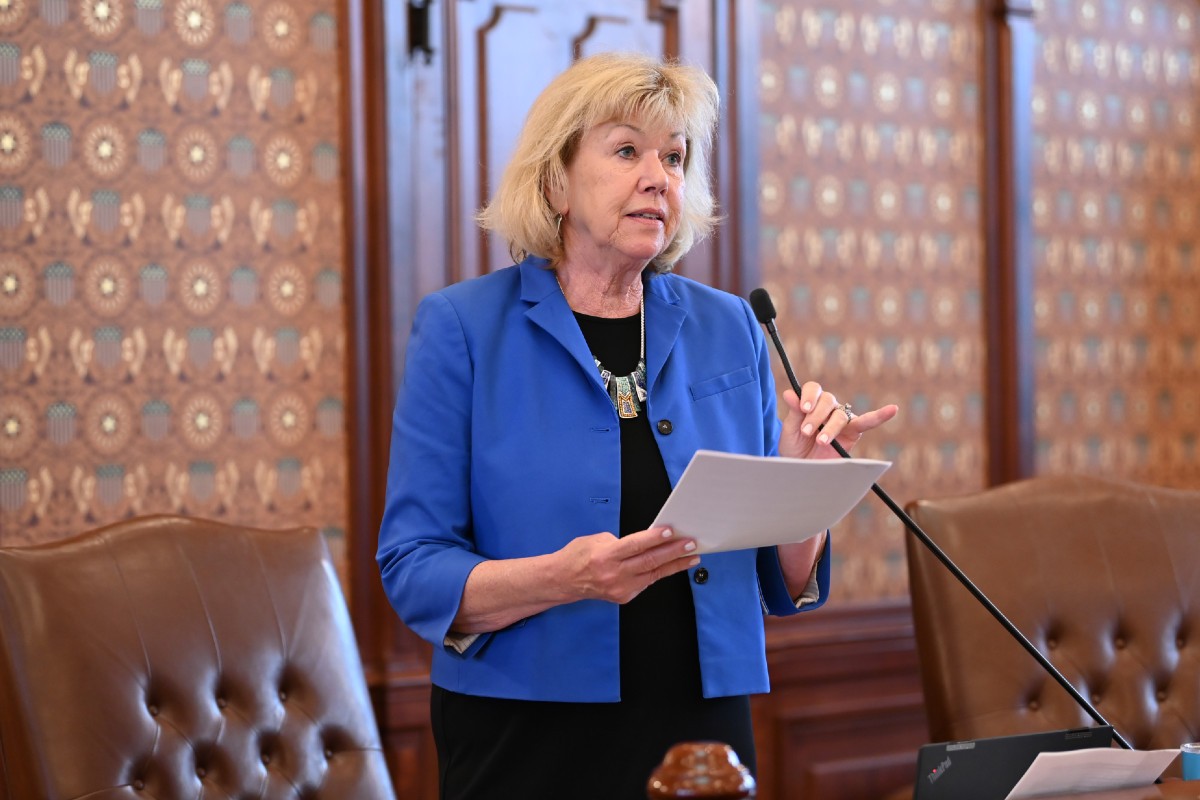Morrison highlights $25 million in available pre-apprenticeship program grants
- Details
- Category: Latest News
 LAKE FOREST — State Senator Julie Morrison is encouraging community organizations, schools and industry groups to apply for grants through the Illinois Works Pre-Apprenticeship Program, which helps open doors for individuals pursuing careers in the construction and building trades.
LAKE FOREST — State Senator Julie Morrison is encouraging community organizations, schools and industry groups to apply for grants through the Illinois Works Pre-Apprenticeship Program, which helps open doors for individuals pursuing careers in the construction and building trades.
“Pre-apprenticeship programs are smart investments in our state’s workforce,” said Morrison (D-Lake Forest). “At a time when labor shortages are felt across many industries, these grants will help close the skills gap and connect more people to high-demand, high-wage jobs.”
The latest round of funding includes $25 million to support pre-apprenticeship programs that aim to increase diversity and create pathways for underrepresented groups in the construction industry, including women, veterans and people of color. The program offers comprehensive, tuition-free training and certifications, along with supportive services to help individuals gain entry to apprenticeships and ultimately secure stable, well-paying careers.
Eligible applicants include nonprofits, chambers of commerce, community colleges, technical schools and school districts, among others. Grants will range from $150,000 to $550,000, with applications accepted until Aug. 31.
For more information, visit the Illinois Department of Commerce and Economic Opportunity’s website.
Morrison announces grant to support learning gardens at Lake Forest History Center
- Details
- Category: Latest News
 LAKE FOREST — A new garden initiative is taking shape at the History Center of Lake Forest-Lake Bluff, which will be further supported by a $15,000 tourism grant, State Senator Julie Morrison announced. The project is underway to create a learning garden space that highlights the region’s legacy of landscape design and conservation while expanding public access to the land.
LAKE FOREST — A new garden initiative is taking shape at the History Center of Lake Forest-Lake Bluff, which will be further supported by a $15,000 tourism grant, State Senator Julie Morrison announced. The project is underway to create a learning garden space that highlights the region’s legacy of landscape design and conservation while expanding public access to the land.
“The History Center is a cherished piece of our community, preserving stories of the people and events that shaped this area,” said Morrison (D-Lake Forest). “This project will invite more visitors into thoughtful spaces where they can connect with and reflect on the beauty and history of Lake Forest.”
The funding was awarded through the Illinois Department of Commerce and Economic Opportunity’s Tourism Attractions Grant Program. Created to boost the state’s tourism economy, the program awarded over $1.6 million to 11 grantees in the latest round of funding for projects that will enhance local attractions, increase visitor rates and generate economic growth in communities across Illinois.
The History Center of Lake Forest-Lake Bluff is set to receive $15,000 to support its outdoor space that explores the national impact of Lake Forest’s land conservation and design efforts. The grant will fund lighting along the garden’s half-mile of paths — winding through 11 gardens that span 120 years of landscape history — to improve accessibility and safety for evening use year-round.
Morrison announces over $278,000 in grants for local libraries
- Details
- Category: Latest News
 LAKE FOREST — To ensure residents of the 29th District continue to have access to quality library resources, State Senator Julie Morrison announced eight local libraries will receive $278,661 in grants from the Illinois Secretary of State to support services, programs and materials.
LAKE FOREST — To ensure residents of the 29th District continue to have access to quality library resources, State Senator Julie Morrison announced eight local libraries will receive $278,661 in grants from the Illinois Secretary of State to support services, programs and materials.
“In the 29th District, we’re fortunate to have vibrant libraries that serve people of all ages and backgrounds — providing resources from early literacy tools, to digital materials and lifelong learning opportunities,” said Morrison (D-Lake Forest). “This funding will help our libraries grow with the needs of the people they serve and remain accessible community spaces.”
Public Library Per Capita and Equalization Aid Grants are awarded annually to support public libraries serving nearly 12 million patrons throughout the state. The funding can be used for collection development, including books and learning materials, online resources and internet access, staff, public programming and capital upgrades.
Morrison law strengthens due process for FOID card holders
- Details
- Category: Latest News
 SPRINGFIELD — A new law championed by State Senator Julie Morrison will create an expedited review process for individuals challenging the revocation of their FOID card due to being deemed a “clear and present danger.”
SPRINGFIELD — A new law championed by State Senator Julie Morrison will create an expedited review process for individuals challenging the revocation of their FOID card due to being deemed a “clear and present danger.”
“This law grants everyone the opportunity for a timely review if they believe their determination is inaccurate,” said Morrison (D-Lake Forest). “With this change, we are improving transparency in the process and helping to ensure decisions are made fairly.”
Under current law, individuals can lose their Firearm Owner’s Identification Card if they are reported to the Illinois State Police as a danger to themselves or others by medical professionals, school officials or law enforcement. These reports can be based on threats of violence, serious mental health concerns or demonstrating suicidal or violent behavior. While there is a process in place to appeal a FOID card denial or revocation, the person is often unable to effectively challenge the decision because information about the original report — such as who filed it and what was said — is not disclosed.
More Articles …
Page 1 of 128





